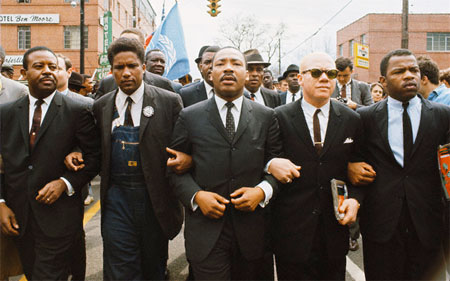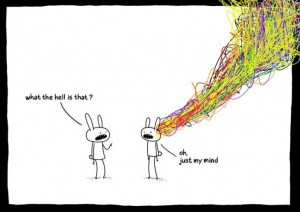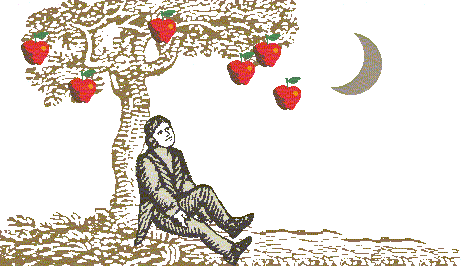Never Any More Than There Is Right Now
 In the first talk our little “Sampler” group will listen to next month, Lila Wheeler offers this quote from Walt Whitman, which I pass on here to you:
In the first talk our little “Sampler” group will listen to next month, Lila Wheeler offers this quote from Walt Whitman, which I pass on here to you:
Stop this day and night with me and you shall possess the origin of all poems…
You shall no longer take things at second or third hand….
nor look through the eyes of the dead….
There will never be any more perfection than there is right now;
any more heaven or hell than there is right now.
***
The title of Lila’s talk is Joy and Gladdening. You can listen to it here.
“Sampler Retreats”
 This morning I sent an email about my latest idea to connect folks here in St. Louis with retreat teachers and practices at Spirit Rock and IMS (Insight Meditation Society). But not everyone is on my mailing list so — with apologies to those who have already gotten the word — I’m re-posting the email here:
This morning I sent an email about my latest idea to connect folks here in St. Louis with retreat teachers and practices at Spirit Rock and IMS (Insight Meditation Society). But not everyone is on my mailing list so — with apologies to those who have already gotten the word — I’m re-posting the email here:
Whenever I come back from retreat at Spirit Rock (SR) or IMS (Insight Meditation Society), I’m always filled with gratitude for the opportunity to sit with and learn from teachers who have had so many years of deep, DEEP experience practicing the Dharma. At the “Box Retreat” on Sunday, Sharon Salzberg said that by the time an insight has formed itself into words/thoughts in your mind, it has already changed you….and it’s clear to me that the teachers I’ve sat with at SR/IMS have been profoundly changed in ways that I also want to be changed.
Which is why I keep going on retreats!
I know how fortunate I am to be able to do that. And I know that taking time away from work and/or family is not something everyone is able to do. Not to mention flying halfway across the country, paying the fees, making the arrangements, etc etc etc. But I also know how vital it is to experience the teachings offered in this way and to connect with teachers who embody this level of practice.
Which is why I’m committed to finding ways to bring something of the retreat practice available at SR/IMS to all of us here in St. Louis. It’s why I joined the board of MidAmerica Dharma and am acting as retreat coordinator for 2017. It’s also why I started offering the video-recorded “Box” retreats.
And now I’ve got another idea:
I’m going to try offering “Sampler Retreats.” By which I mean choosing a sampling of recorded talks and guided meditation instructions taken from a selected retreat offered at SR/IMS, and playing them — one each week, for 4 weeks — at my house (in Dogtown), to a small group of people who have signed up in advance and are committed to attending at least 3 of the 4 weeks. We would start each session with sitting meditation and end with group discussion.
Here’s the first “Sampler”:
Joy on the Path: selected talks/instructions from this retreat at IMS (January 9-16, 2016), led by Lila Kate Wheeler (one of my mentors) and Pascal Auclair.
“While silently sitting and walking with meditative presence, and with guidance from the teachers, we will explore the different kinds of spiritual joy: joy in the happiness of others and in their good qualities and good fortune; the joy of blamelessness; and the joy of presence, concentration, insight and liberation!“
Thursday, Feb 4, 7:00 to 9:00 pm: Joy and Gladdening, talk by Lila Kate Wheeler
Thursday, Feb 11, 7:00 to 9:00 pm: Meditation Instructions on Concentration, led by Pascal Auclair
Thursday, Feb 18, 7:00 to 9:00 pm: This Fleeting Life, talk by Lila Kate Wheeler
Thursday, Feb 25, 7:00 to 9:00 pm: Joy on the Path, talk by Pascal Auclair
(There are 11 recorded talks/instructions available from this retreat. Click here for the full set of talks.)
Space at my house is VERY limited. Send me an email here if you would like to reserve a seat and expect to be able to attend at least 3 of the 4 weeks. Also, email me if you are interested in future “Samplers,” but are unable to attend this one.
I hope this works!
May I Offer….
 In honor of Dr. Martin Luther King, Jr. and as a follow-up to yesterday’s “Box Retreat” on the theme of Equanimity, I want to offer these phrases for your reflection and for use in your practice.
In honor of Dr. Martin Luther King, Jr. and as a follow-up to yesterday’s “Box Retreat” on the theme of Equanimity, I want to offer these phrases for your reflection and for use in your practice.
Some of these phrases are direct quotes from Rev. Howard Thurman, who deeply influenced Dr. King. Some are inspired by him. Some are more traditional meditation phrases used in Equanimity Practice, similar to the phrases offered by Sharon Salzberg at yesterday’s retreat.
All were taken from a guided meditation led by Lila Kate Wheeler, one of my mentors. To listen to the talk, click here. (16 minutes)
Pick one (or more), sit quietly and let it drop into your mind — like a pebble into a pond — then just breathe:
* May I see the world with quiet eyes.
* May I offer my care and presence without conditions, knowing I may be met with gratitude, anger, or indifference.
* May I find the inner resources to truly be able to give.
* May I offer love, knowing I can’t control the course of life, suffering, or death.
* May I remain in peace and let go of expectations.
* May I offer my efforts and help, knowing it may be of great benefit, some benefit, or maybe even no benefit.
* May I be free from prejudice.
Watch It With a Friend!
 I watched a terrific new video last night of Jack Kornfield giving a Solstice/New Year’s talk about setting intentions (among other things) and it included a lovely Blessing/Protection Chord ritual you could do at home. (All you need is a piece of string!)
I watched a terrific new video last night of Jack Kornfield giving a Solstice/New Year’s talk about setting intentions (among other things) and it included a lovely Blessing/Protection Chord ritual you could do at home. (All you need is a piece of string!)
The video is free and available to anyone. It’s about an hour long and would be a great way to start the New Year. Click here.
Just Put It Down
 As I posted earlier, most of the talks from the retreat I just went to are only available for people who attended the retreat. But there are two that are publicly available….and on one of them….you can hear ME!
As I posted earlier, most of the talks from the retreat I just went to are only available for people who attended the retreat. But there are two that are publicly available….and on one of them….you can hear ME!
The talk starts with a guided meditation (led by Phillip Moffitt) and after about 30 minutes, he opens it up to questions. You can hear him directing someone to bring the microphone “to Jan,” then you can hear me ask a question (not very articulately) about the instructions, which he answers….and then he says, “OK, now YOU guide ME.”
Yikes!!!!
Where I had gotten confused was when he talked about “stillness,” and I found that I was trying really hard to HOLD my mind still….which I couldn’t do!….and then, when he answered my question, I understood that he wasn’t suggesting I try to clamp down and MAKE it be still, but that I could just LET it be still. When I got that, the words that came to me were: just put it down.
So I used that phrase to guide Phillip, and he said — quite generously — that the way I had done it was “beautiful.” Click here for the talk. To go right to the exchange, fast forward to about the 30 minute mark. (My “15 minutes of fame” only lasts about a minute or two.)
The Workings of the Mind
 Every-other Monday night I play a Dharma Seed talk for any of my dharma buddies who want to come over and listen. (So far, only Thomas has taken me up on the offer, but all are invited! Send me an email here, if you’d like to come.)
Every-other Monday night I play a Dharma Seed talk for any of my dharma buddies who want to come over and listen. (So far, only Thomas has taken me up on the offer, but all are invited! Send me an email here, if you’d like to come.)
Anyway, the talk we listened to last night was given by Winnie Narzarko at the Forest Refuge a few weeks ago. It’s titled: What’s Going on in the Teacher Meetings? I don’t think I’ve ever heard anyone give a whole talk on the intention and the dynamics of those one-on-one “teacher interviews,” which are a standard part of all the longer-than-3-or-4-day meditation retreats I’ve ever been on.
It was a terrific talk, especially for anyone getting ready to go on retreat (which is me!). But even for those who aren’t in that particular situation, I’ll offer this quote, which really caught my attention. Winnie was saying that the teacher/student meeting could be summed up as “a two-person joint dharma inquiry” and that the “main purpose of the meeting from the perspective of practice” is an investigation — done as a joint enterprise — of the workings of the mind, which leads to wisdom and insight.
So here’s the quote:
“Having established mindful connection with experience, the mind begins to notice how it creates suffering and how it can release that suffering.”
Exactly! That, right there in a nutshell, is what the practice is all about.
Selling Fishhooks
 Last night, one of my dharma buddies and I listened to a fascinating talk by Guy Armstrong, titled: Consciousness, Awareness and Nibbana. In the talk, he quoted this lovely poem by Rumi:
Last night, one of my dharma buddies and I listened to a fascinating talk by Guy Armstrong, titled: Consciousness, Awareness and Nibbana. In the talk, he quoted this lovely poem by Rumi:
Tending Two Shops
Don’t run around this world
looking for a hole to hide in.
There are wild beast in EVERY cave!
If you live with mice,
the cat claws will find you.
The only real rest comes
when you’re alone with the Mystery.
Live in the nowhere that you came from,
even though you have an address here.
That’s why you see things in two ways.
Sometimes you look at a person
and see a cynical snake.
Someone else sees a joyful lover,
and you’re both right!
Everyone is half and half,
like the black and white ox.
Joseph looked ugly to his brothers,
and most handsome to his father.
You have eyes that see from that nowhere,
and eyes that judge distance,
how high and how low.
Yow own two shops,
and you run back and forth.
Try to close the one that’s a fearful trap,
getting always smaller. Checkmate,
this way. Checkmate that.
Keep open the shop
where you’re not selling fishhooks anymore.
You ARE the free-swimming fish.
Cosmic Allurement
 More from the talk Jack Kornfield gave at the Fetzer Institute (which Mirabai shared with me during my visit with her):
More from the talk Jack Kornfield gave at the Fetzer Institute (which Mirabai shared with me during my visit with her):
“I think of love as mysterious, like gravity. You can research it in certain ways, but scientists cannot agree on the nature of gravity. Brian Swimme talks about cosmic allurement, that we came out of the singularity and we remember it.
“The great mystery is that we are interested in, attracted to, anything whatsoever. Love beings there: to become fascinated, to feel allurement, is to step into a wild love affair on any level of life. By pursuing your allurements, you help bind the universe together. The unity of the world rests on the pursuit of passion.
“Contemplative practices are designed to re-establish or re-awaken the original visceral body sense, both physically and emotionally. In practice, all our senses are somehow awakened to love.
“The question for the future of humanity is: How will transformation happen in the world? Not by outer change alone. No amount of computers or internet or nanotechnology and biotechnology are going to stop warfare or racism or environmental destruction without an awakening to interdependence and to love.
“Without the inner dimension meeting the outer, we’ll achieve new scientific developments but probably also find new ways to oppress and harm one another. We’ve been doing it for a long time. Plato [may have] said that only the dead have seen the end of war. You hear that and you weep…
“We have to remember that we are all interdependent. Love is the shift of identity, the opening, the permeability in membranes. It doesn’t mean that you lose your individuality but that your uniqueness is linked to the whole. Love is what we long for, and it’s what makes us happy.
“Why not become the one who ‘lives with a full moon in each eye that is always saying with that sweet moon language what every other eye in the world is dying to hear.'”
I Wonder If I Should Help
 For today, more from the interview with Jack Kornfield I quoted yesterday.
For today, more from the interview with Jack Kornfield I quoted yesterday.
In Zen, they say there are only two things: you sit and you sweep the garden. And it doesn’t matter how big the garden is. That is, you learn to quiet the mind and open the heart and to remember in that stillness what really matters. Those are the values of the heart and who you are. You discover that who you are is loving-awareness itself, incarnated into this mystery. And as you do, the sense of connection to life shows itself. You don’t even have to cultivate it. As you get quiet, you feel it and you know it. And then you get up from your cushion and you sweep the garden. If people are hungry, you feed them. If people are sick and you have medicine, you offer it, because they’re part of you.
When you hurt your hand, if you’re slicing tomatoes in the kitchen and you accidentally cut yourself, you don’t go, “Oh, that poor hand. I wonder if I should help it. Should I do something about it?” It’s you! It’s part of you. It’s so deeply obvious that you wash it and you put on a Band-Aid or whatever. And as you quiet the mind and open the heart, you begin to realize that the world is you, that you are the world. And so it becomes a spontaneous and beautiful expression of your fundamental Buddha-nature, your fundamental goodness, that you tend the world.
Without mindfulness or compassion training, it’s easy to get overwhelmed and think, “Well, all the problems of the world are too great. I just have to get through the day and try as best I can.” Mindfulness makes it easier to step out of the sense of being overwhelmed. You see with clearly. And you realize: “I can respond in some way. I have some agency and capacity. And I can add my piece.”
And by adding your drop into the river–the river of justice or the river of mutual care or the river of caring for the environment–it nurtures you, and it nurtures the world.
***
(read the full interview here)
The Mystery All Around Us
 It will be my turn to lead the Sunday Sangha group this coming weekend. I wanted to continue our conversation about the teaching/experience of “non-self,” but I wasn’t sure what I would bring as a reading, until I opened my email and found this: an interview with Jack Kornfield, recently published in Spirituality and Health magazine. Here’s an excerpt.
It will be my turn to lead the Sunday Sangha group this coming weekend. I wanted to continue our conversation about the teaching/experience of “non-self,” but I wasn’t sure what I would bring as a reading, until I opened my email and found this: an interview with Jack Kornfield, recently published in Spirituality and Health magazine. Here’s an excerpt.
Q: You’ve mentioned “the mystery” a couple of times during this conversation. What do you mean?
A: One of the great gifts of a contemplative moment or practice is that as we quiet the mind and soften the heart and look around, we see the mystery all around us, whether it’s of trees or rainfall or the forms of the earth or our own human body.
How did we get in here — this strange, bipedal form with a hole at one end, into which we regularly stuff dead plants and animals and grind them up and glug them down through the tube for energy, and poop them out the other end? We ambulate by falling in one direction and catching ourselves, and falling in the other direction and catching ourselves. We have the capacity to make sounds by pushing air by our vocal cords and shaping our mouths, and I can say “Golden Gate Bridge,” and you can picture that.
No one really knows exactly how that happens. They know how the sodium-potassium balance changes in the auditory nerve and goes to the auditory centers of the brain. But beyond that, that interdependence, the web in which we live is so mysterious. And it’s the same web that spins the galaxies and turns our seasons.
So, to meditate, in some way, is to be able to stop and listen to the dance or the music of life with a sense of reverence and connectedness and awe. And from that, then tend your life and tend this world beautifully.
Q: And yet, some not-so-positive stuff also comes up when we meditate, such as grief and despair. Is it important to focus on the positive stuff on a spiritual journey?
No. A spiritual path opens you to the 10,000 joys and the 10,000 sorrows. It cracks the heart open to weep at the loss of species. It allows you to honorably feel the tears that you carry from your own personal trauma or from the death and loss or tragedy around you personally and more broadly.
But we can also become loyal to our suffering. And suffering, while it’s vast and can be tended with great compassion, is not the end of the story.
The end of the story is love and freedom. And this is possible for you. We don’t do it by ignoring the suffering around us, but by knowing that who we are and what life is, is greater than that.
***
Read the full interview here.
